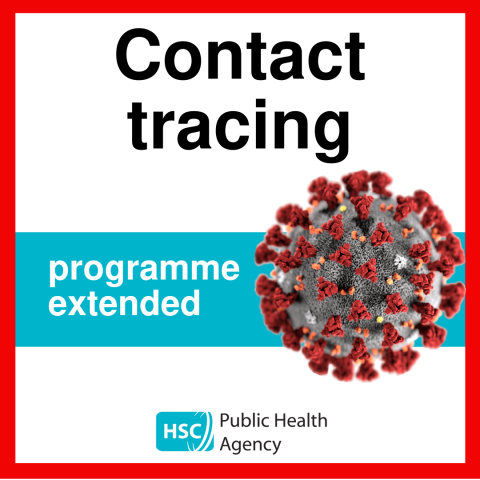Contract tracing programme continues to expand in Northern Ireland

Northern Ireland’s contact tracing programme is continuing to expand, with all positive cases of COVID-19 now being contact traced.
Contact tracing is an important part of infection control, and is a key part of Health and Social Care’s work to help reduce the impact of COVID-19.
Health Minister Robin Swann said: “I very much welcome the roll out of this contact tracing and commend those involved in making it happen.
“This is another example of the herculean work right across the HSC system to fight back against COVID-19 and keep people safe.
“The battle against the virus is a long-term challenge and contact tracing will have a very important role as part of that.”
On Monday 27 April, the Public Health Agency (PHA) commenced a pilot programme of contact tracing which is helping to inform the planned roll-out of a Northern Ireland-wide contact tracing programme, as requested by the Department of Health.
Dr Jackie Hyland, Consultant in Health Protection at the PHA, said: “Contact tracing on COVID-19 at this stage involves new ways of working given the scale and the fact that new evidence is continually emerging about the illness. We have teamed up with colleagues in the university sector and Health and Social Care Trusts to put in place all the necessary logistics.
“We are now rolling out contact tracing further and working with the public to support people who may have been exposed so they can get tested and self-isolate to help prevent spread of infection.
“We are progressing our plans for scaling up the second phase of the Northern Ireland contact tracing service, informed by the learning from the current pilot programme. This work involves testing all aspects of the programme, including processes and resilience.
“From 14 May we have been undertaking contact tracing for all confirmed positive cases of COVID-19. Testing is also now available to everyone in Northern Ireland aged over five with symptoms, which will form an important part of the contact tracing programme. The number of staff currently required changes each day in line with workload, but we have sufficient staff trained and available to manage contact tracing and meet demand.”
The Department of Health is also taking forward work around digital solutions that can support the wider contact tracing programme when it goes live.
Contact tracing means identifying people who have been in close contact with someone who has tested positive for COVID-19, informing them of this, and providing them with information on the symptoms to be aware of, what to do if symptoms develop, and if they need to self-isolate or get tested.
Dr Hyland added: “Contact tracing will allow the health service to identify those at risk of exposure and put the appropriate plans in place to help prevent further spread of COVID-19. It is a fundamental, tried and tested part of outbreak control that’s used by public health professionals around the world.
“Successful contact tracing relies on every person in Northern Ireland understanding what to do if they develop symptoms, and being prepared to follow the public health advice.
“People are asked to be aware that they may be phoned by the PHA contact tracing staff. We will talk to people with a positive test about their infection and we will ask them if there are people they have been close to who may be at risk of becoming ill (their contacts).
“A contact tracing team member will then phone these contacts and talk to them about their risk of infection. Everyone who has the infection and who is a close contact will have to self-isolate. To be successful in contact tracing we need people to provide their phone number when they get a test.”
As part of the scaling up of contact tracing, there will be a public information programme to keep people aware of the processes involved and any actions they should take.
Testing and contact tracing will only have an impact on reducing transmission in the community if individuals self-isolate when required. Self-isolating can be very difficult for people, so the health service is working together with volunteers and departments to try to ensure that appropriate support is available.
There is a commitment right across Health and Social Care to take actions to further prevent the spread of COVID-19.
The land border with the Republic of Ireland is an important factor in the spread of infectious diseases and therefore contact tracing. There are well-established systems in place to work with our colleagues in the Republic of Ireland on contact tracing and management of infectious diseases, and the health service is working at pace to develop new, more efficient ways of working collaboratively to reduce the spread of COVID-19, and help protect cross-border travellers.
